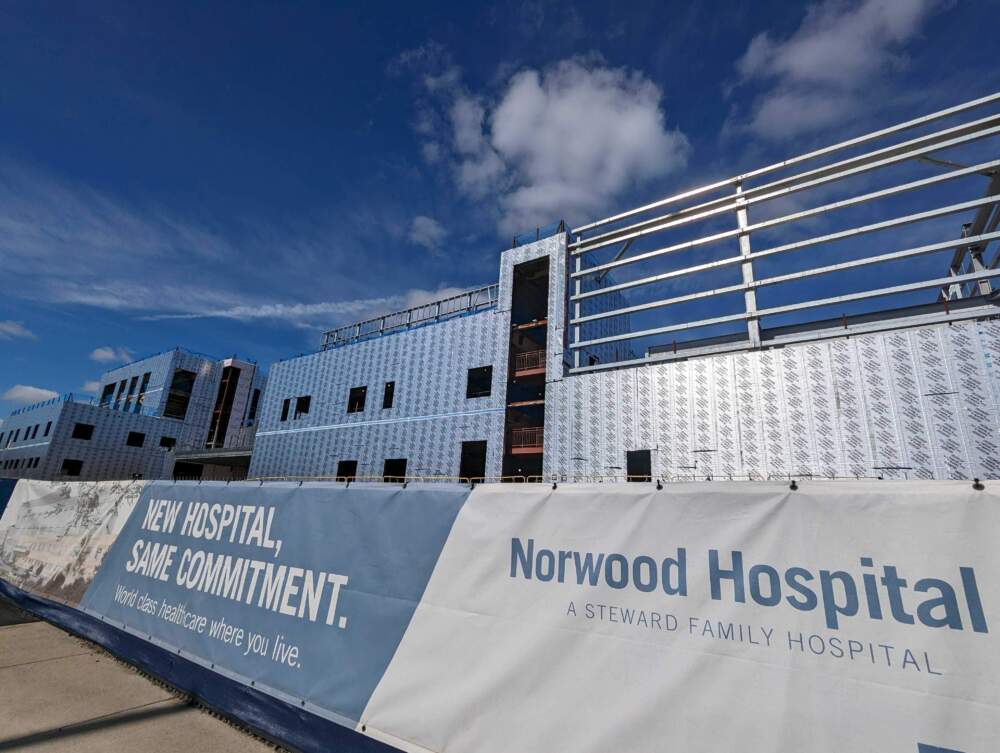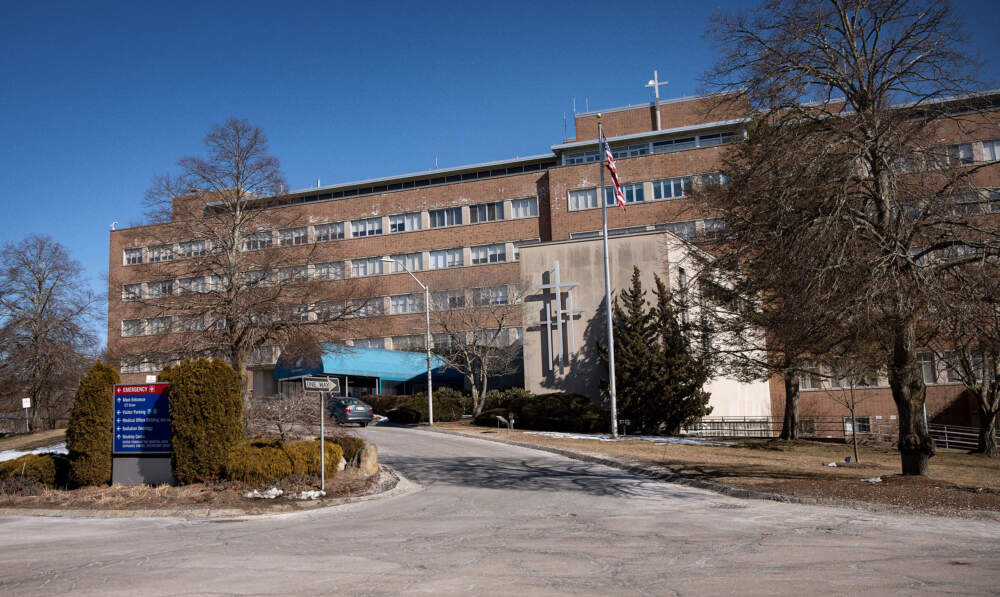Advertisement
Steward hospital chain's financial woes could spread to other states
With the future of Steward Health Care's Massachusetts hospitals in jeopardy, health industry experts are concerned the private, for-profit company's financial troubles could ripple through hospitals around the country.
Steward operates more than 30 hospitals nationwide, and its finances are deeply entangled with one of the largest owners of hospital real estate in the nation. The company appears to be facing serious losses, raising questions about if and when Steward's money problems might impact hospitals in several states.
Massachusetts officials have begun monitoring patient care at Steward hospitals daily, after the company said its financial losses are jeopardizing operations. The company runs seven acute-care hospitals in Massachusetts and is in the process of closing a rehabilitation hospital. A ninth facility in the state has been closed for construction after flooding in 2020.

Steward's Massachusetts hospitals employ nearly 16,000 people and serve hundreds of thousands of patients. The company says the majority are covered by Medicaid and Medicare, the public insurance programs for older adults, low-income patients and people with disabilities. Many Steward facilities sit in areas where there are few other hospital options. Massachusetts Gov. Maura Healey says her office is working on contingency plans to ensure patient care and jobs are protected.
"I am frustrated with where we are right now as a state and what Steward has done," Healey told a meeting of the state's Health Policy Commission this month.
Healey wrote a letter to Steward executives demanding more of the company's financial information and threatening to bar patient admissions at its hospitals unless safety is ensured.
Steward has blamed much of its losses on low reimbursement rates for publicly insured patients, saying about 70% of its patients are covered by Medicaid. Many other Massachusetts hospital systems say their capacity is already stretched, and they would not be able to absorb Steward patients if its hospitals fail.
Although Steward began in Massachusetts, it is now based in Dallas and owns dozens of hospitals across seven other states.
It remains unclear how the company's finances became so strained. Steward has refused to provide audited financial information to Massachusetts officials, arguing it is confidential business information, and the company is not required to make it public.

There have long been signs that Steward's finances were tight. Several lawsuits from vendors and contractors allege that some of the company's bills have gone unpaid for years. Steward's landlord recently reported that Steward owes $50 million in back rent.
In 2016, Steward sold its Massachusetts hospital real estate to Alabama-based Medical Properties Trust, or MPT, a real estate investment trust. Harvard health care policy researcher Dr. Zirui Song said the deal allowed Steward to get capital to pay off some debt and provide returns to investors. But Steward agreed to pay high rents to MPT to continue running those same hospitals.
"This is a strategy of generating additional returns, but also increasing the risk because now the acquired entity faces even more financial pressures given the new rent obligations it did not have before," Song said.
The deal with MPT also allowed Steward to expand quickly, according to Cornell University Professor Rosemary Batt, who has researched investors' effects on health care.
"Once they made this deal with the Massachusetts hospitals, [Steward] went on a buying spree and ended up with 33 hospitals across the country, doing the exact same thing: buying hospitals, selling the property to Medical Properties Trust, loading them with debt," Batt said, "so this is like a house of cards."
MPT, Steward's landlord, owns more than 400 health care properties around the U.S. and internationally. Steward is its largest tenant. In an earnings report this month, MPT indicated it wants to reduce its exposure to Steward.
Some financial analysts have suggested Steward has been staying afloat with loans from MPT, but that funding may now be less readily available. Rob Simone, an analyst at the research firm Hedgeye, started advising investors against MPT two years ago, arguing Steward was nearly insolvent.
"The only reason that Steward is failing right now in my view — and the math kind of bears this out — is because MPT cannot afford to loan any more money to Steward," Simone said.
Steward executives have said they are working to continue providing patient care, and are cooperating with Massachusetts officials. They said they are willing to work with the Healey administration on an "orderly departure" from the state. MPT did not respond to requests for comment.
Federal officials say the uncertainty surrounding the future of Steward's hospitals in Massachusetts could result in tougher federal regulations of for-profit health care.
